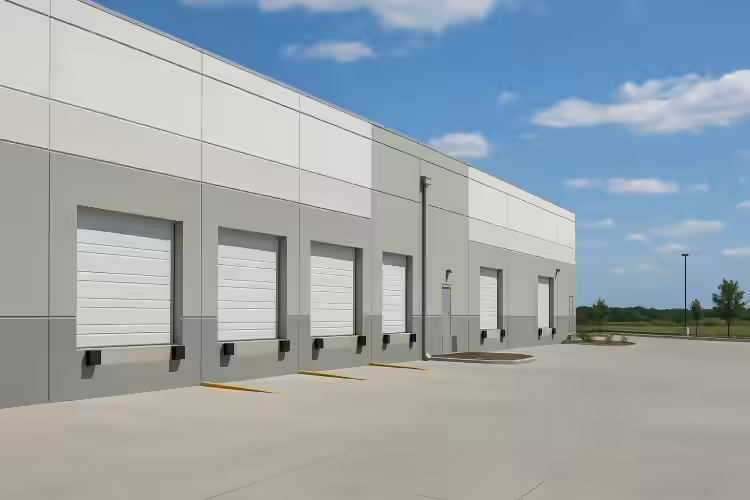Triple Net Lease in Industrial Real Estate: A Deep Dive
What Is a Triple Net Lease?
Let’s start with the basics. A triple net lease—often abbreviated as “NNN lease”—is a commercial lease where the tenant pays not just rent, but also takes on three major expense categories: property taxes, insurance, and maintenance.
Sound like a lot? It kind of is. But that’s the point.
NNN leases are incredibly popular in industrial real estate, especially for warehouses, logistics hubs, and distribution centers across the U.S. In places like Dallas, Texas or Ontario, California, you’ll find landlords using them as a standard.
So why would a tenant agree to that setup? Good question. It boils down to control, predictability, and—often—lower base rent.
Key Features of NNN Leases
Here’s what really defines a triple net lease:
- Taxes: The tenant pays their share (or all) of the property taxes.
- Insurance: They’re also responsible for insuring the building or reimbursing the landlord for it.
- Maintenance: This includes everything from roofing and HVAC to parking lot striping and landscaping.
But there's nuance. For example, “maintenance” can be defined broadly or narrowly depending on the lease. Some leases will carve out structural repairs as the landlord's duty, others won’t.
Pros and Cons for Landlords and Tenants
Let’s break it down.
For Landlords
Pros:
- Stable income with fewer surprise costs.
- Less day-to-day involvement—you're not fixing toilets or re-sealing parking lots.
- Valuation boost—NNN properties are often favored by investors.
- You may still be legally on the hook for certain compliance issues.
- If the tenant neglects maintenance, your asset can take a hit.
For Tenants
Pros:
- Lower base rent compared to gross leases.
- More control over the space—no waiting on the landlord to fix stuff.
- Cost transparency—you see the real cost of operating that facility.
- Surprise expenses if something major breaks down.
- You’re wearing the landlord hat—whether you like it or not.
Triple Net vs Other Lease Types
Think of lease types as a spectrum:
- Gross lease: You pay rent. That’s it. The landlord handles all costs.
- Modified gross lease: Some costs get passed to you (e.g., utilities).
- Triple net lease: You pay almost everything.
If you’re a tenant who wants full control of your operations—especially in a 50,000+ square foot warehouse—it might be ideal. If you’re a landlord looking to simplify your financial modeling and reduce overhead, it’s a win too.
Negotiating Triple Net Lease Terms
Just because it’s a “triple net” lease doesn’t mean it’s non-negotiable.
Here’s where the rubber meets the road.
Expense Caps
Some tenants will negotiate caps on CAM (common area maintenance) expenses. That’s smart. Nobody wants to get stuck paying for a new parking lot or $50K in HVAC upgrades they didn’t plan on.
Exclusions
Tenants should push for clarity on what’s *not* included in their maintenance duties. Are they fixing structural issues? Roof leaks? Fire sprinklers?
Audit Rights
Tenants should ask for the right to audit CAM charges and tax bills. Landlords, be ready with clean books.
Repair Responsibilities
Don’t just say “maintenance is tenant’s responsibility.” Spell it out. Who handles what—and how quickly?
Common Pitfalls to Watch Out For
A few traps that pop up again and again:
- Deferred maintenance: A low base rent may hide big repair costs coming your way.
- No audit clause: As a tenant, that’s like flying blind into a foggy storm.
- Vague terms: “Maintenance” needs teeth. Get specific.
- Short leases on long-life assets: A 3-year lease on a 30-year roof? Someone’s losing that bet.
Real-World Examples
Let’s say you’re looking at a 120,000-square-foot distribution center in Atlanta, Georgia.
The rent is $4.50/sf/year—pretty attractive. But then you find out you're on the hook for $0.80/sf in property taxes, $0.35/sf in insurance, and $1.10/sf in CAM. That adds up fast.
Still, for a major e-commerce business needing control over 24/7 operations, that kind of setup is often worth it.
On the flip side, a mom-and-pop food distributor in Cincinnati, Ohio might prefer a gross lease in a smaller space. They don’t want to chase down roofing contractors at 3 a.m.
Final Thoughts
Triple net leases aren’t just a financial tool—they’re a mindset.
For landlords, it’s about passive income and risk mitigation. For tenants, it’s about operational control and transparency.
But like any legal agreement, the devil’s in the details.
Get a good attorney. Read the fine print. And remember: just because it's called a triple net lease doesn’t mean all NNN leases are the same. They're not.
So whether you’re buying a warehouse in Phoenix or leasing a logistics hub in Charlotte, know what you're getting into—and negotiate like it matters.
Because it does.

